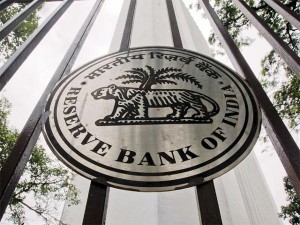The RBI relaxed foreign investment norms in financial services firms, startups and in investments by foreign regulated capital investors.Foreign Venture Capital Investors (FVCIs) can invest in Indian startups without prior permission of the RBI.
- Sebi-registered FVCIs have also been permitted to invest in unlisted firms in sectors like biotechnology, nanotechnology and dairy without prior permission of the RBI. They will not require any approval from Reserve Bank and “can invest in equity or equity linked instrument or debt instrument issued by an Indian ‘startup’ irrespective of the sector in which the startup is engaged,”

- These relaxed norms will help rationalise the investment regime for FVCIs and give a fillip to foreign investment in the startups
The RBI defines a ‘startup’ as any private limited company, partnership or a limited liability partnership, registered in India less than five years ago, with a turnover of less than Rs 25 crore during any of the preceding financial years. Such entities, the central bank stipulates, should be “working towards innovation, development, deployment or commercialization of new products, processes or services driven by technology or intellectual property.”
RBI decides to allow FDI up to 100% in other financial services
The Reserve Bank of India (RBI) has opened the gates for more overseas investment coming to India by a series of steps liberalising the foreign direct investment rules, even as it braces for a possible $26-billion outflows on account of FCNR-B deposit (foreign currency nonresident-bank) maturities.
- Such FDI shall be subject to conditionalities, including minimum capitalisation norms as specified by the concerned regulator or government agency.
- In the financial services activities that are not regulated or are partly regulated by any financial sector regulator or where there is a lack of clarity regarding regulatory oversight, FDI will be allowed up to 100 per cent under the government approval route.
- The present regulations on non-banking finance companies (NBFCs) stipulate that FDI would be allowed on automatic route for only 18 specified NBFC activities after fulfilling prescribed minimum capitalization norms mentioned therein.
- Other salient features of the revised regulatory framework include downstream investment by any entity engaged in ‘Other Financial Services’ and will be subject to extant sectoral regulations.
India central bank allows banks to approve extension of offshore company’s debt
The Reserve Bank of India has allowed banks to approve extension of external commercial borrowings on their own provided the debt is unpaid and has not defaulted before.
- Earlier banks had to seek approval of the central bank before restructuring any such offshore borrowings.
- Any extension of tenure, or conversion of unpaid ECBs into equity will be subject to consent of other lenders to the same borrower
RBI :
♦ RBI Governor: Urjit Patel
♦ Founded: April 1, 1935
♦ Headquarters : Mumbai





